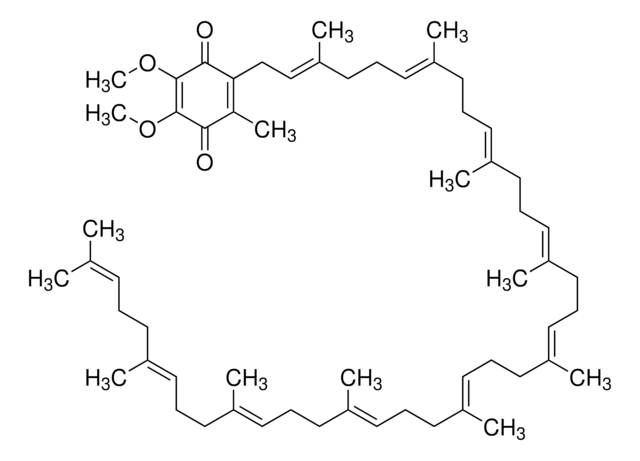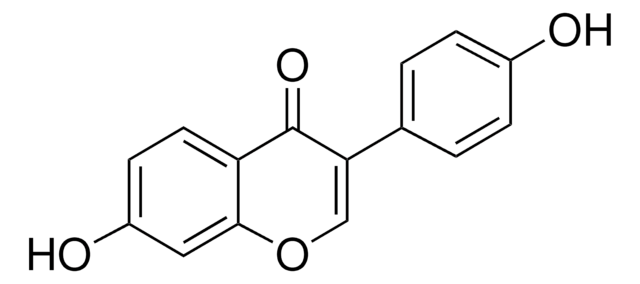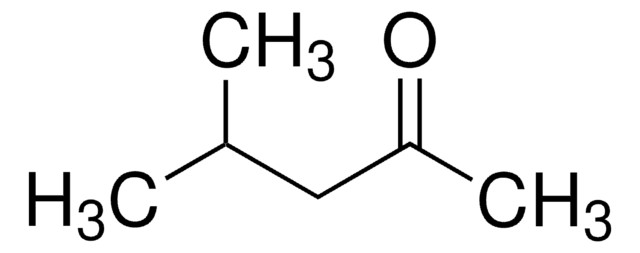U0020000
Ubidecarenone
European Pharmacopoeia (EP) Reference Standard
Synonym(s):
Coenzyme Q10, Q-10, Ubiquinone 50, Ubiquinone-10
About This Item
Recommended Products
biological source
fermentation/recombinant (yeast)
grade
pharmaceutical primary standard
Agency
EP
API family
ubidecarenone
form
solid
manufacturer/tradename
EDQM
technique(s)
gas chromatography (GC): suitable
liquid chromatography (LC): suitable
mp
49 °C
application(s)
pharmaceutical (small molecule)
format
neat
Looking for similar products? Visit Product Comparison Guide
1 of 3
This Item | W273104 | 02474 |
|---|---|---|
| Quality Level 100 | Quality Level 400 | Quality Level 100 |
| technique(s) HPLC: suitable | technique(s) - | technique(s) HPLC: suitable, gas chromatography (GC): suitable |
| assay ≥99.5% | assay ≥99% | assay ≥99.7% (GC) |
| form liquid | form liquid | form - |
| vapor density 3.5 (vs air) | vapor density 3.5 (vs air) | vapor density 3.5 (vs air) |
General description
Application
Packaging
Other Notes
Storage Class Code
11 - Combustible Solids
WGK
WGK 3
Flash Point(F)
Not applicable
Flash Point(C)
Not applicable
Choose from one of the most recent versions:
Certificates of Analysis (COA)
Sorry, we don't have COAs for this product available online at this time.
If you need assistance, please contact Customer Support.
Already Own This Product?
Find documentation for the products that you have recently purchased in the Document Library.
Customers Also Viewed
Our team of scientists has experience in all areas of research including Life Science, Material Science, Chemical Synthesis, Chromatography, Analytical and many others.
Contact Technical Service




